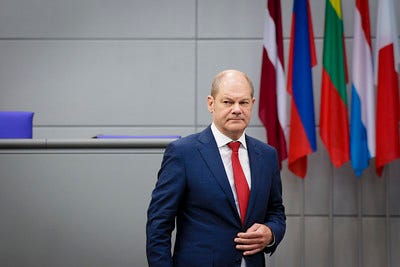One Year Later, Germany is Still Turning After Its 'Turning Point' With Russia
The invasion of Ukraine caused Germany to change in ways never thought possible. But too often, Berlin moves at its own glacial pace.

Three days after Russia launched its unprovoked invasion of Ukraine, German Chancellor Olaf Scholz gave a stunning spe…


